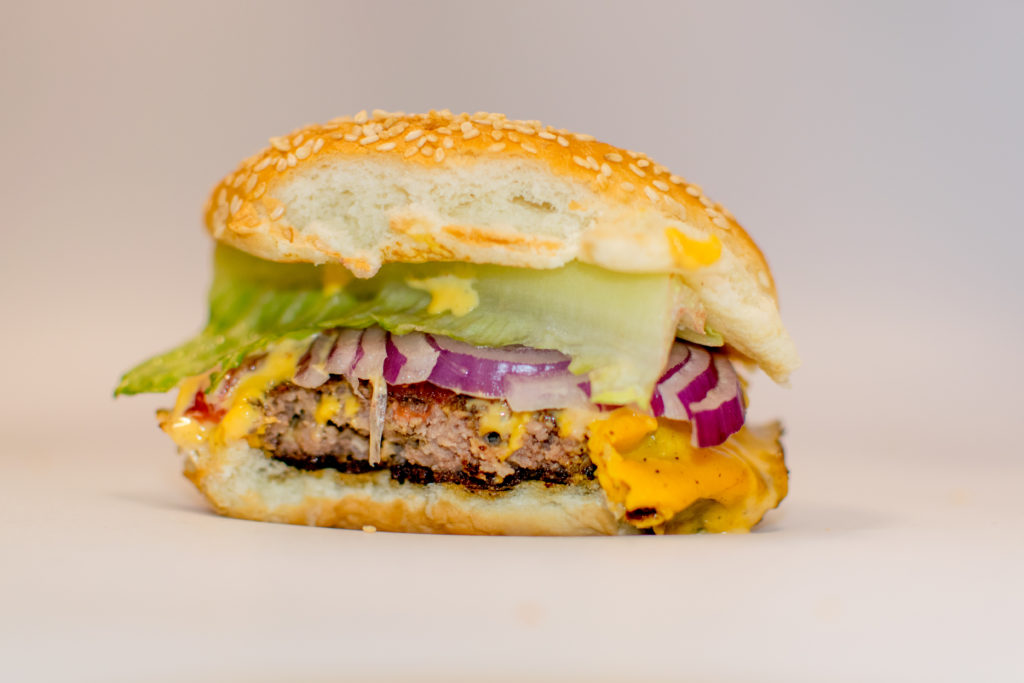True Life: Addicted to Fat

photo by Minn Park
Bacon, oily and mouthwatering, crackling in a cast iron skillet. French fries, perfectly salted and crisp, still piping hot after a quick dip in the deep-frier. A piece of apple pie, warm, topped with a scoop of melting vanilla bean ice cream. A freshly-baked golden-brown biscuit, flaky and drenched in honey butter. In a world full of irresistible treats, it is no wonder we find ourselves in a constant internal struggle of self-control when it comes to foods that make our hearts rejoice as they pass our lips, but leave us feeling lethargic and heavy if consumed in excess. The common denominator? Fat: the indulgence we are seemingly hard-wired to crave. A true if not unrealized addiction we as humans cannot seem to escape. If you, like many others, have questioned why this so-called addiction exists, fear not: there indeed exists a biological explanation.

Fat plays a unique role in the human diet. Aside from being the most concentrated source of dietary energy, fat is a key contributor to the texture, flavor, and aroma of most foods. In the past, researchers have claimed that our love for fat can be largely contributed to evolution. Due to the fact that fat has high survival value, packed with more calories than even carbohydrates or proteins, eating fattier foods would have benefited our ancestors as they would have been equipped with more energy to hunt and gather. Thus, those who were more inclined to eat fattier foods were more likely to survive and reproduce, allowing the human race to evolve to crave fat.
In today’s day and age, the closest we come to hunting for our food is making our way to the meat aisle of the closest grocery store. This forces us to turn to other explanations for our unmatched love for rich, fatty foods. Aside from evolution, simple human brain biology may also largely influence our addiction to fat. In fact, studies have shown that fatty food may play an important role in the mesocorticolimbic reward circuitry of the brain, which refers to a series of interconnected brain regions that are activated by rewarding stimuli.
Within this reward pathway, the neurotransmitter dopamine plays a key role in mediating stimulation. Activation of this area of the brain is associated not only with natural rewards such as palatable foods, but also social interaction and drugs of abuse. In effect, high-fat/high-sugar food actually stimulates the brain in the same way that drugs do, explaining why many people simply cannot resist fatty foods even though they know that they are bad for them. Indeed, this is quite alarming; this effectively means that you are not completely out of line when you compare your relentless love for sea salt chocolate chip cookies to a drug dependence problem.
Cravings for fatty, unhealthy foods can be further increased by stress. When it comes to responding to stress, there are two types of people in this world: those who stress eat, and those who don’t. As for those of you who identify with the former category, you can agree that fatty foods consumed under stress (think finals season) seem to taste even better than if eaten during a normal, stress-free time. Although the whipped, decadent cream cheese frosting on that red velvet cupcake will undoubtedly taste heavenly on any day, there is something a bit more satisfying about its smooth texture and sugary flavor when you are eating it late at night during a quick study break.
The reason for this is that stress, particularly chronic psychological stress, has been shown to increase the release of glucocorticoids, a class of steroid hormones which can act on the brain to stimulate appetite. In addition to increasing the desire for food, glucocorticoids also potentiate the release of dopamine in the brain which, as previously mentioned, is closely associated with feelings of reward and pleasure. Essentially, fatty foods taste satisfying and delicious all the time, but under times of grueling stress they taste even better.
The next time you find yourself reaching for a bag of salt and vinegar potato chips while up late studying for an exam, or indulging in an extra scoop of dulce le leche ice cream as you labor over a thesis paper, take comfort in the fact that such an impulse is not a result of a self-control deficit, but a complex interplay of biological factors. After all, if humans are hard-wired to crave fat, who are you to deny your natural instincts?